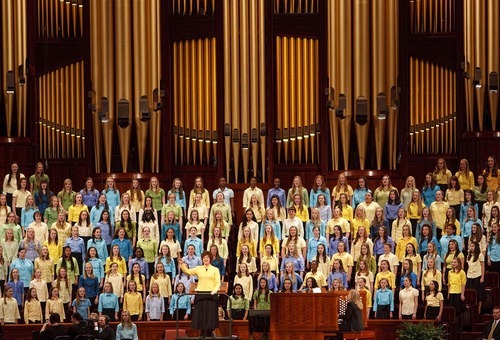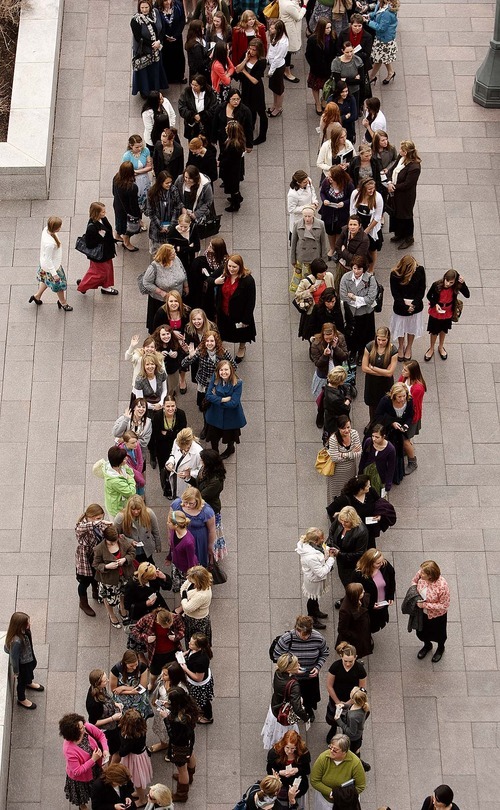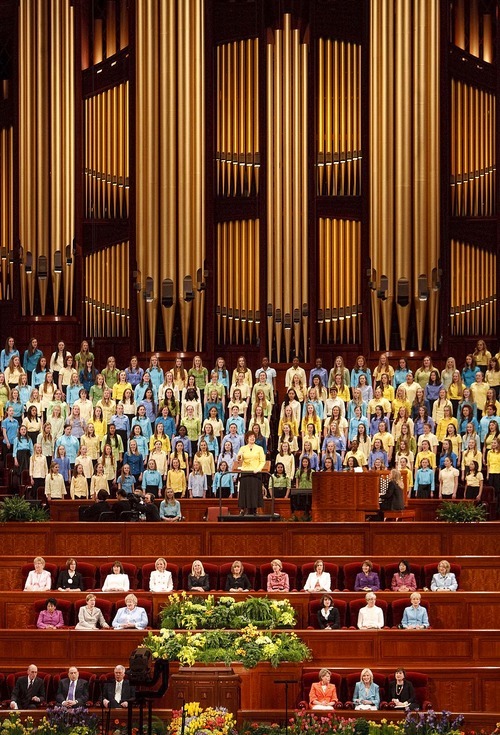This is an archived article that was published on sltrib.com in 2011, and information in the article may be outdated. It is provided only for personal research purposes and may not be reprinted.
Mary N. Cook challenged Mormon girls to do at least one "Samaritan-like" act of kindness in the coming weeks, reaching beyond their normal circle of friends to serve those who don't treat them well, outsiders or the elderly.
"I promise that if you will extend yourself beyond what is easy to do, you will feel so good inside that kindness will become a part of your everyday life," Cook, first counselor in the LDS Church's Young Women's organization, told nearly 20,000 girls between 12 and 18 who had gathered in the LDS Conference Center in downtown Salt Lake City for the group's annual meeting. Hundreds of thousands more were watching Saturday night's meeting via satellite in Mormon chapels across the world.
Sometimes being benevolent is hardest in our own families, Cook said, admonishing the girls to avoid speaking or acting selfishly and to be a peacemaker "rather than to tease, fight, and quarrel."
Ann M. Dibb, second counselor, urged the girls to be "true to [their] beliefs, even when doing so isn't popular, easy, or fun."
Such integrity, Dibb said, would help them to have "a positive effect on the lives of others."
Elaine S. Dalton, Young Women president, told each girl to be a "guardian of virtue," which she described as being "modest not only in your dress, but in your speech, your actions, and your use of social media."
It also means never texting words or images to young men that may cause them to "lose the [Holy] Spirit, lose their priesthood power, or lose their virtue," Dalton said. "It means that you understand the importance of chastity because you also understand that your body is a temple and that sacred powers of procreation are not to be tampered with before marriage."
Henry B. Eyring, first counselor to LDS President Thomas S. Monson, described Brigham Young's concerns for his daughters in a time far removed from the temptations of the 21st century, yet remarkably similar.
Young saw that "worldly influences were drawing them away from the Lord's pathway to happiness," Eyring said in the evening's concluding speech. "In his days those influences were brought in part by the new transcontinental railroad connecting the isolated and protected [Latter-day] Saints to the world."
The 19th-century Mormon leader may not have predicted today's technological miracles, in which a hand-held device can connect young women to "countless ideas and people across the Earth," Eyring said. "But he saw the value for his daughters — and for you — in having their choices being made out a powerful testimony of a living and loving God and his plan of happiness."











